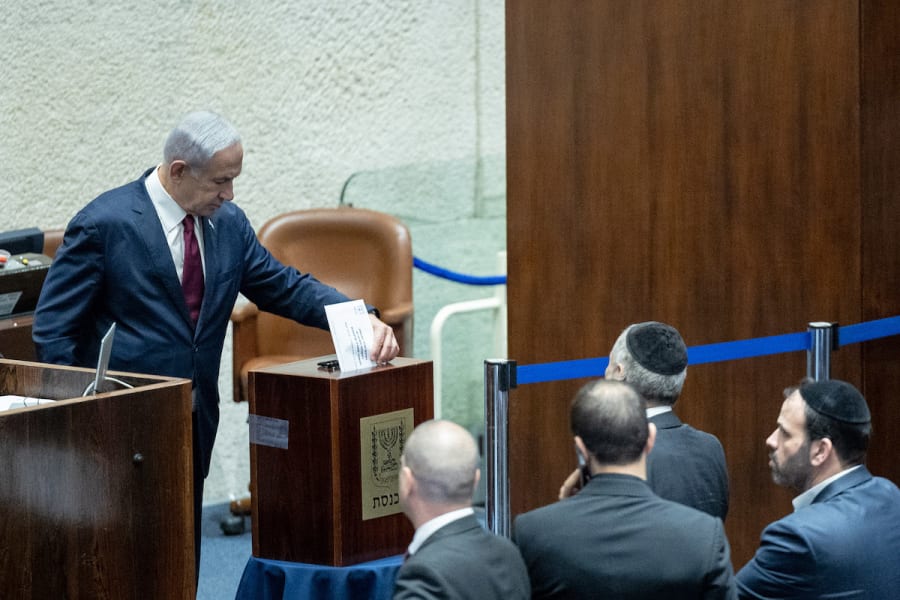Turbulent day in Knesset as coalition infighting leads to opposition receiving a seat on Judicial Selection Committee
Debacle reportedly happened because Netanyahu and his coalition partners could not agree on an opposition candidate

In a dramatic day full of statements and reversals, the coalition failed to elect a representative to the Judicial Selection Committee, while the opposition representative was selected.
Knesset Member Karine Elharrar from the Yesh Atid party received 58 votes for her appointment to the committee, with 56 Knesset members voting against her.
According to the voting rules, a candidate who receives more votes in favor than against is appointed to the committee.
The coalition did not agree on a candidate, and Knesset Member Tali Gottlieb from the Likud party did not receive a sufficient amount of votes – only 15 in favor with 59 votes against.
Israeli Prime Minister Benjamin Netanyahu had reportedly asked Gottlieb to withdraw from the vote as part of a strategy to delay voting, but she did not.
According to Knesset rules, a second vote to fill the vacant spot must be held within 30 days.
The Judicial Selection Committee is composed of nine members: The justice minister, another minister chosen by the cabinet, two Knesset members (traditionally one from the coalition and one from the opposition), two members of the Bar Association and three current Supreme Court justices. Appointments of Supreme Court judges require a majority of 7 of the 9 committee members.
The composition of this critical committee has become a serious battleground in Israeli society, which remains deeply divided on the government’s judicial overhaul plan.
Leaders of the weekly protests warned the government that “everything will ignite” if no opposition lawmaker is elected to the committee.
“We are on alert and are available [to spring into action] at a moment’s notice,” according to an official statement by protest leaders. “We suggest that the government not test us,” they added.
The selection of Knesset members for the panel was viewed as a litmus test for continued dialogue between the government and the opposition over the judicial reforms in general.
Some critics fear that two members of the coalition might be elected and, thereby, determine the outcome of the judicial reform at the opposition’s expense.
The political debacle reportedly took place because Netanyahu and his coalition partners could not come to an agreement on an opposition candidate.
Netanyahu was reportedly willing to follow Knesset tradition – while not obligated by law – but some of his coalition partners were unwilling to allow an opposition candidate, saying the coalition should fill both slots on the Judicial Selection Committee.
Netanyahu then asked all coalition candidates to withdraw from the voting, which could have forced a one-month postponement.
The strategy failed when four coalition members apparently voted for Elharrar.
Voting for the Judicial Selection Committee is anonymous, so it is not known which coalition members voted for Elharrar.
Opposition leaders Benny Gantz, head of the National Unity party, and Yair Lapid, head of Yesh Atid party, called the selection of Elharrar “good news” during a joint appearance after voting results were announced.
Both said there is no need to continue with compromise talks until the committee is finalized.
Lapid called Netanyahu a fraud and condemned his attempt to delay the vote after agreeing to an opposition member.
“Once Netanyahu was a fraud and strong. Today he’s a fraud and weak,” Lapid said.
Gantz said that Netanyahu’s plan to undermine the agreements had failed. He also praised the unknown coalition members who voted for Elharrar.
“What happened today is that the prime minister decided to go against the country,” Gantz said. “He tried and failed.”
Gantz also said that Netanyahu’s behavior in the lead-up to the vote “raises a major question mark about his judgment in critical matters.”

The All Israel News Staff is a team of journalists in Israel.














